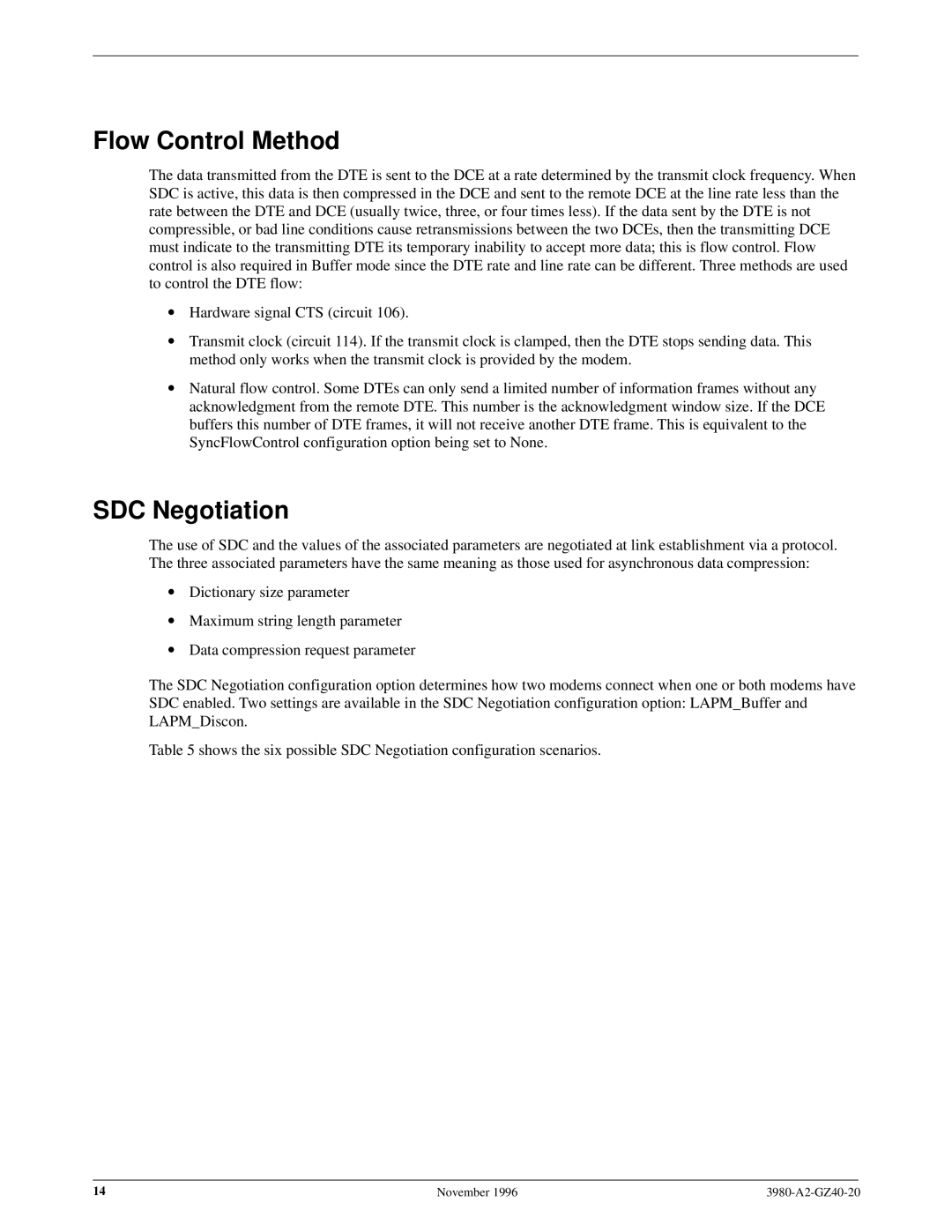3980-A2-GZ40-20 specifications
The Paradyne 3980-A2-GZ40-20 is a cutting-edge communication device renowned for its robust features and advanced technology. Designed primarily for high-performance networking applications, this versatile modem is a cornerstone in the field of data transmission. Its key strengths lie in its reliability, speed, and adaptability, making it suitable for a wide range of environments, from industrial settings to telecommunications.One of the primary features of the Paradyne 3980-A2-GZ40-20 is its exceptional data transmission capability, supporting multiple protocols to ensure seamless connectivity. It can operate efficiently over a variety of transmission media, including T1, E1, and DSL lines. This flexibility allows organizations to leverage existing infrastructure while scaling their communication needs.
The device employs advanced modulation techniques, which enhance its performance in terms of both speed and error correction. With a maximum throughput that meets the demands of today’s data-heavy applications, the Paradyne 3980-A2-GZ40-20 supports data rates that ensure prompt delivery and reduced latency.
In terms of design, the Paradyne 3980-A2-GZ40-20 boasts a compact form factor, making it easy to integrate into existing systems without requiring significant space. Its rugged construction is tailored for durability in challenging conditions, ensuring consistent performance even in harsh environments. This reliability is crucial for mission-critical applications where downtime can have significant implications.
The device is also equipped with an intuitive management interface that simplifies configuration and monitoring. Users can access real-time diagnostics, which aids in troubleshooting and maintenance, enhancing overall operational efficiency. Additionally, compatibility with various network management protocols paves the way for seamless integration into broader network architectures.
Security is another paramount feature of the Paradyne 3980-A2-GZ40-20. It incorporates robust encryption and authentication protocols that protect data integrity during transmission. This focus on security is vital as businesses increasingly recognize the importance of safeguarding sensitive information.
In summary, the Paradyne 3980-A2-GZ40-20 is a powerful and versatile communication device that excels in performance, flexibility, and security. Its advanced technologies and durable design make it a top choice for organizations looking to enhance their networking capabilities and ensure reliable communication. Whether in telecommunications, industrial applications, or other sectors, the Paradyne 3980-A2-GZ40-20 stands out as a dependable solution for modern data transmission needs.

